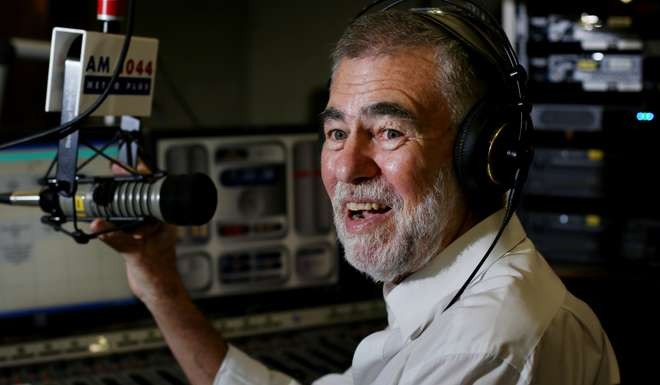
System failure? Calls for transparency in Hong Kong’s ‘cruel’ prison sentence reviews
Last year the city’s jail term review board analysed 520 sentences, and reduced none. Insiders say change is needed
Mario Delos Reyes, 61, has been in jail for 22 years. He cuts a skinny figure, too thin for his uniform, from behind the glass and the phone he uses to speak to visitors at Stanley Prison.
His beaming face fades once he starts talking about why he is in prison. In 1993 Delos Reyes, from the Philippines, got involved in a fight in Sai Kung. A man died from two stab wounds to the chest.
Delos Reyes was arrested for murder and sentenced to life. Another man fled Hong Kong.
“I pleaded not guilty,” he said. “My lawyer told me to admit manslaughter, but I even got angry. That was not true… If I had done that, I would have gotten something like four to seven years.”
He claims he did not commit murder. He is one of 284 people who last year served an indeterminate sentence in Hong Kong prisons – meaning there is no set release date.

People like Delos Reyes are usually considered for release by the Long-term Prison Sentences Review Board after five years, and every two after that. The city’s chief executive decides upon the board’s recommendation.
But few inmates have such sentences turned into determinate ones. Delos Reyes has been rejected nine times.
Advocates accuse the board, which was created in 1997, of showing “little mercy” and call for clearer and more flexible guidelines as well as a more open and transparent panel.
“The review board’s statistics are very bad. They don’t show any compassion,” said Bruce Aitken, host and producer of the Metro radio programme Hour of Love, which caters for prisoners.
According to official data, last year the review board analysed 107 indeterminate sentences.
Of those, 14 were recommended to be commuted to determinate ones. In 2014, there were 12 out of 128 and in 2013 13 from 126.

The board regularly reviews long determinate sentences, mostly for drug-related crimes, but rarely reduces them.
Last year, of 520 sentences reviewed, none was reduced.
“This makes the whole exercise somehow meaningless,” said Tobias Brandner, associate professor at the department of cultural and religious studies at Chinese University. “I would love to see the board use its discretion regarding long determinate sentences in a way that gives more incentive to inmates serving such sentences.”
The point of indeterminate sentences is to try to ensure offenders are released when they are no longer deemed a serious risk to the public. In some countries, such as those in Europe, these sentences are regarded as a violation of human rights.
“Many prisoners write to me about the review board. Keeping them for another two years or so won’t be a deterrent... It’s a cruelty in many cases.” Aitken said, referring to those with indeterminate sentences and who have already spent a long time in jail. “These people are just forgotten. I find it an appalling human treatment.”

Brandner, who is also a prison chaplain, has studied the issue for 20 years. He said things have got better in the past decade, but there is still room for improvement.
“There is no kind of objective measurement as to when a life sentence turns into a determinate sentence,” he said.
“Of course that there are cases that have waited for too long… Why do some people come out earlier than others is a question sometimes hard to answer.”
He suggests that after prisoners serve a certain period of time, for instance 15 years, a duty lawyer may represent them while their cases are under review. In a second phase, inmates may appear before the panel.
“The panel should be more open, transparent and should report what they are doing to the public,” Brandner said.
A Security Bureau spokesman said the panel considers several factors when reviewing sentences, such as the offence, mitigating circumstances, time served, rehabilitation prospects and behaviour.
In its latest review, the board concluded Delos Reyes, who is married and has two sons, had not served sufficient time. He hopes he will be successful in the review next year and be deported.
Aitken, who visits prisoners as a volunteer, said: “I think the panel is too strict. People pay a price for their crime, but sometimes the price is just too high.”

